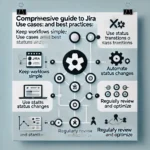QA vs Developer: Collaborative Excellence in Software Development
Quality Assurance (QA) and Developers are two critical roles in the software development process, each with unique responsibilities and objectives. While their goals may seem divergent at first glance, they are both integral to delivering high-quality software products. In this blog post, we will explore the differences and similarities between QA and Developers and highlight the importance of their collaboration in achieving excellence in software development.
Quality Assurance (QA)
QA professionals are responsible for ensuring that the software meets predefined quality standards. Their primary objective is to identify and fix defects and issues in the software before it is released to end-users. QA activities begin early in the development process and continue throughout the software development lifecycle.
Key responsibilities of QA include
a. Test Planning: QA specialists create detailed test plans outlining the testing strategy and scope.
b. Test Execution: QA professionals carry out various types of testing, such as functional testing, integration testing, performance testing, security testing, and usability testing.
c. Defect Identification and Reporting: QA identifies and reports defects to the development team for resolution.
d. Regression Testing: QA ensures that new updates or changes do not introduce new defects and do not impact existing functionality.
e. Customer-Centric Approach: QA focuses on ensuring that the software meets customer requirements and provides a positive user experience.
https://synapsefabric.com/2023/07/26/qa-vs-uat-understanding-the-crucial-differences/
Developers
Developers are responsible for designing, coding, and implementing software solutions based on the project requirements. They bring the software to life by translating designs and specifications into functional, robust, and efficient code. Developers work closely with the QA team to understand and address reported defects.
Key responsibilities of Developers include
a. Coding and Implementation: Developers write code using various programming languages and frameworks to build the software.
b. Bug Fixing: When QA reports defects, developers analyze and fix the identified issues promptly.
c. Continuous Integration: Developers integrate their code into the main codebase frequently to ensure that the software remains stable.
d. Performance Optimization: Developers optimize the code for better performance and efficiency.
e. Collaboration: Developers work closely with other team members, including QA, to ensure seamless cooperation and delivery of high-quality software.
Collaborative Excellence
While QA and Developers have distinct roles, their collaboration is vital to the success of the software development process. Effective communication and cooperation between these teams can lead to significant benefits, including:
- Early Bug Detection: QA identifies defects early in the development process, allowing developers to address them promptly, minimizing costly rework later.
- Improved Software Quality: By working together, QA and Developers can create a culture of quality, leading to a more robust and reliable end product.
- Faster Delivery: Streamlined collaboration between QA and Developers reduces delays and accelerates the software development timeline.
- Enhanced User Experience: The combined efforts of QA and Developers result in software that aligns closely with user expectations and needs.
QA and Developers are two integral pillars of software development, each playing a crucial role in ensuring the delivery of high-quality software products. Their collaboration and synergy are key to achieving excellence and meeting customer expectations. Emphasizing open communication, mutual respect, and a shared dedication to quality, these two teams can work hand-in-hand to create software solutions that leave a lasting positive impact on end-users.






